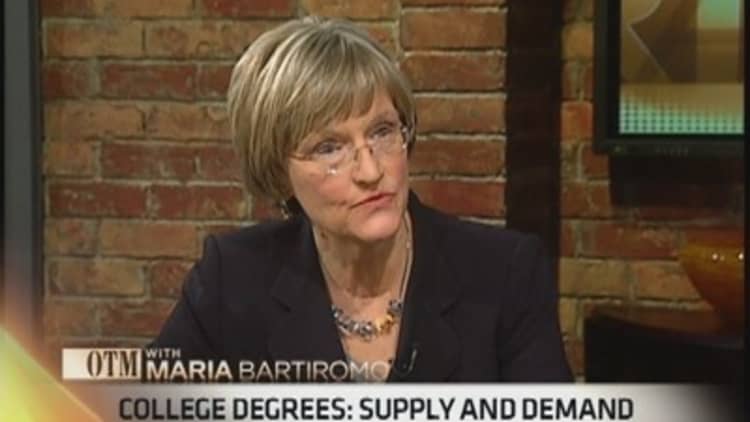Getting ready for college involves plenty of organization, planning and choices of what to pack. (No, you don't need that soccer trophy.)
If you are about to be a college freshman, don't forget to include some simple tips about saving and managing money somewhere in your gear.
From financial planners and advocates for financial literacy, here are the most important things freshmen need to know about money.
First, when it comes to credit cards, less is more—more money in your pocket, that is. Credit card companies can no longer market on campuses the way they used to, but "that doesn't mean someone who's 18 can no longer get a credit card on their own," said Pamela Sandy, founder of Confiance, a financial advisory firm.
Read MoreNew tactics keep college kids hooked on plastic
Parents may think that having a credit card is necessary for a student to start establishing a credit record, but making payments on a federal student loan can also do the trick. "I have always said no to credit cards completely," said Lazetta Rainey Braxton, founder of Financial Fountains, a financial advisory firm.
If you have to have a credit card for a particular store or a regular expense, make sure to pay your bills on time, or you will be hit with punishing interest costs. And missing credit card payments can trash your credit record, which can impede a job search, your ability to take out a mortgage, and more.
"Just because you may have a credit card doesn't mean you should use it. Emergencies only. An emergency is not that you slept through breakfast and the dining hall is closed," said Thomas Murphy, a partner at the financial advisory firm Murphy & Sylvest.
College may also mark the first time you open a bank account, or at least your first on your own. A bank account is a great idea, but make sure you understand all the associated terms and fees that come with it.
Read MoreNew financial pitfalls awaiting your college kid
Sandy recalled that her daughter racked up close to $500 in bank charges over a single weekend after miscalculating how much she had in the account and being hit with repeated overdraft fees.
"She just made an error and was going about her weekend like always," charging little things and incurring big penalties each time, Sandy said.
If you have a job, and you can spare the cash, some say it's a good idea to for college freshmen to put some earnings in an IRA. The power of compounding is enormous when you are 18.
Even a minimal amount in a Roth or traditional IRA "can turn into a huge amount when they retire," said Wen Jie Lin, an associate at Brewster Financial Planning.

Freshman year is also a time when students can obtain more financial aid—especially with a high grade-point average.
Read MoreA 5-letter word to reduce student debt
"At the end of the first semester when a lot of kids have flunked out or otherwise no longer qualify for their aid package you might be able to pick up funds. Check every semester," said Murphy. Also, "when you declare a major after completing your general education courses, go to the dean of your declared major and ask for additional aid availability. The dean very often has options."
College is also a good time to get in the habit of making a budget and sticking to it. Student finances are typically simple, and it's always a good idea to keep track of where your money is going. Those late night snack runs can add up.
Read MoreHow to cut those other costs of college
"The ability to budget money is really important," said Laura Levine, executive director of the Jump$tart Coalition for Personal Financial Literacy. "Have some sort of a plan for where it's going to go and how it's going to last."
As for money-saving opportunities, student discounts abound. Around almost any campus, merchants will offer deals for student customers. Ask, and you may receive.
Many students think living off campus will be less costly than dorm life and a meal plan, but Therese Nicklas, a financial advisor and wealth coach for women at U.S. Wealth Management, said that's not necessarily true. Before taking that leap, Nicklas suggests talking to a college housing officer or perusing Craigslist to get an estimate of apartment rental costs, and checking the local supermarket for prices on food. Be aware, too, that an apartment roommate may bail on the rent, a risk that is not present in a dorm.
"Take a good hard look at this before you make a decision," Nicklas warned.
The good news is that the college years offer a relatively safe transition into financial adulthood. Freshmen who steer clear of credit cards, keep an eye on bank fees, keep up their grades, and go easy on midnight pizzas should be just fine.
Said Levine, "They don't have to have their whole life planned out as freshmen. But if they are paying attention, that will go a long way."
—By CNBC's Kelley Holland


